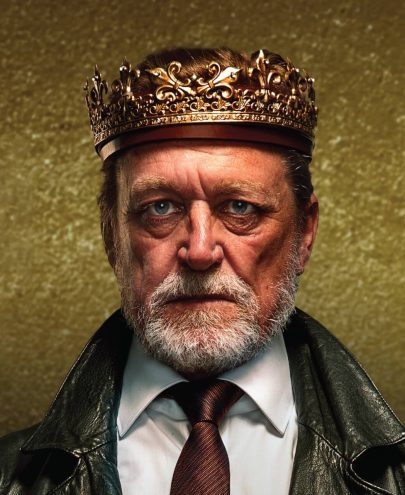Mar 21, 2013 Theatre
Eastmann VZW and Theatre Royal de la Monnaie
The Civic, to March 23.
In the beginning there were no words, and people communicated in signs that allowed them to say everything we can say today. Of course, there were misunderstandings, so over time a single gesture – hand out, palm up – developed to signify what became a vital concept: forgive me.
Such a lovely idea. It’s presented at the start of Babel by a single dancer, with great wit and charm, and knife-sharp physical precision – but with more than a touch of the sinister too, for she echoes Metropolis, Fritz Lang’s city where the dream was to climb to a state of mechanical grace beyond the human.
That dream was a nightmare, of course, and one way to read the two hours of Babel is as an assertion that humanity will always thwart the mechanical – not, as it happens, because we are superior to machines, but because the great messy range of human emotions is beyond control. To understand “forgive me” is to be human.
There’s a lot of talking, in English, Japanese, French, Arabic, Spanish, Italian and many more languages, and some of it, even when you don’t know exactly what they are saying, is very funny. Some of it is also quite pointed. But despite its adherence to the current fashion for talky dance, Babel, like all good dance, succeeds because of its aesthetics: the qualities of the music and the dance itself.
It’s breathtakingly precise when it wants to be and almost free form at other times. Its balance of repetition and variety is spot on – they make extensive use of percussive and other rhythms, but never come close to getting stuck on them. It soars into sequences of extraordinary beauty, especially at the heart of the show in a long sequence when the dozen or so dancers move five enormous three-dimensional rectangular frames around the stage.
That sequence – geometry made beautiful, human irregularity contrasted with fixed angles and shapes, patterns forming and dissolving right through the great height and depth of the Civic stage; and dancers running, pushing themselves so hard, getting trapped and getting freed, timing it all with such exhilarating flair, and so obviously loving what they are doing – that sequence is something I will remember, and feel transported by, I hope forever.
And yet the dance is barely the best of it: there are also five musicians, playing all manner of gorgeous instruments, with the most marvellous of all being the human voice. The singing, which swoops from Arab-inspired to medieval Italian and who knows what else, is almost a show on its own.
There’s so much more. They strip off their tops and fight, women as well as men doing the lifting. They form a giant bird, wings outstretched, right across the stage. They raise themselves from the floor, repeatedly, somehow thrusting up on the fronts of their feet.
The choreographers (Frenchman Damien Jalet and Belgian Sidi Larbi Cherkaoui) have chosen a company of body shapes that tend to the short and stocky (Jalet himself the prime example) and their low centres of gravity are instrumental in defining the low, fast, powerful, strongly extended movement style. Such glorious energy, and such absolute control.
Are they trying to tell us we’d be better off without words, if we could dance? I don’t really think so, and I certainly hope not. But they definitely are trying to show us that in the great confusion of the world, dance and music help us not just find a purpose, but come to terms with our weaknesses. An exhilarating night in the theatre.





